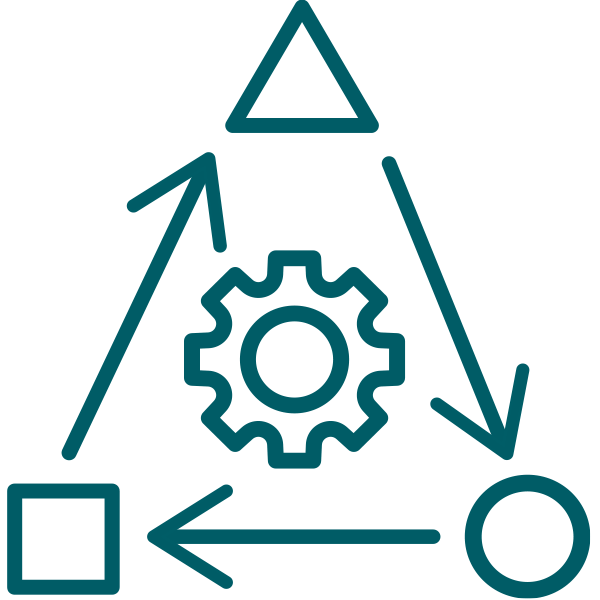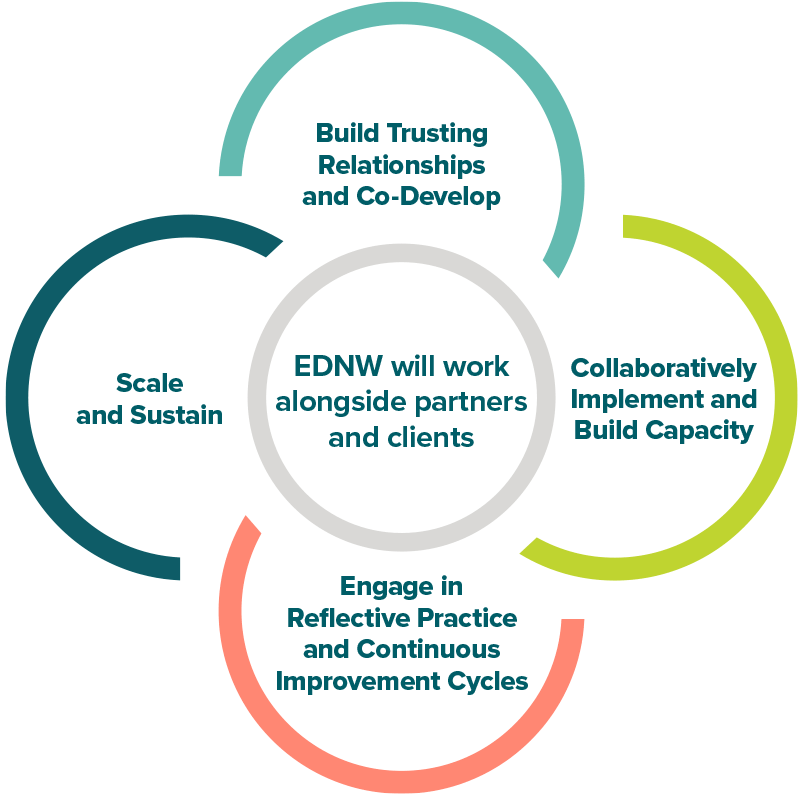The Education Northwest approach to technical assistance reflects our commitment to working in close partnership to make meaningful improvements that benefit students, educators, and entire education systems. We honed this approach over decades of partnering with schools, local education systems, Tribes, state education agencies, and organizations. It draws from research as well as our values, lived experience, and expertise.
Foundational Principles for Successful Partnership
Our approach is driven by six foundational principles. These principles are extensions of our values and they shape every aspect of how we work with our partners.
-

Equity-Centered
We center the experiences of individuals, schools, and districts that are furthest from opportunity, using data to identify those with the greatest need and improve their access. We also work closely with our partners to include the broadest possible representation in projects while prioritizing the most underserved and underrepresented communities.
-

Evidence-Based
We leverage research literature and local data to identify and implement interventions that are proven effective and meet the needs of students and the community. In line with best practices of implementation science, we prioritize relevance, feasibility, and local context.
-

Collaborative and Responsive
Our asset-based approach honors the knowledge, skills, values, and lived experiences of our partners and their communities. We start by listening and never assume that we have all the answers. Instead, we collaborate at every phase to align with our partners’ contexts and goals.
-

Priority-Focused
We identify clear, high-leverage priority areas and design our technical assistance around them. By sharpening our focus, we co-create realistic expectations that respect the resources and needs of our partners.
-

Aligned
By aligning our work to existing initiatives and long-term priorities, we help our partners extend their resources and progress toward established goals. In addition, aligning technical assistance to ongoing work promotes sustainability and scaling.
-

Adaptable
We adapt our services and delivery mechanisms to accommodate diverse audiences and contexts.

Our Approach in Action: A Four-Phase Process
Our approach is driven by six foundational principles—Building Trust, Building Capacity, Engaging in Practice, and to Scale and Sustain. These principles are extensions of our values and they shape every aspect of how we work with our partners.
Phase 1
Build Trusting Relationships and Co-Develop
We take time to understand our partners’ context and establish a shared understanding and goals. Together, we co-develop plans and measures of success to ensure that our efforts align with local priorities and approaches.
Phase 2
Collaboratively Implement and Build Capacity
We collaborate to implement efficient, comprehensive, and coherent systems of support that honor our partners’ priorities and needs. We combine and manage various sources of support and avoid disconnected, competing initiatives and programs.
Phase 3
Engage in Reflective Practice and Continuous Improvement Cycles
We engage in two-way feedback loops about implementation and gather data from multiple sources—including our partners, practitioners, and families—to monitor progress along the way.
Phase 4
Sustain and Scale
We monitor and improve supports to sustain implementation and use feedback loops to communicate progress, strategies, and successes. We focus on strengthening internal structures and processes to build our partners’ capacity to support local education agencies, schools, and communities.

